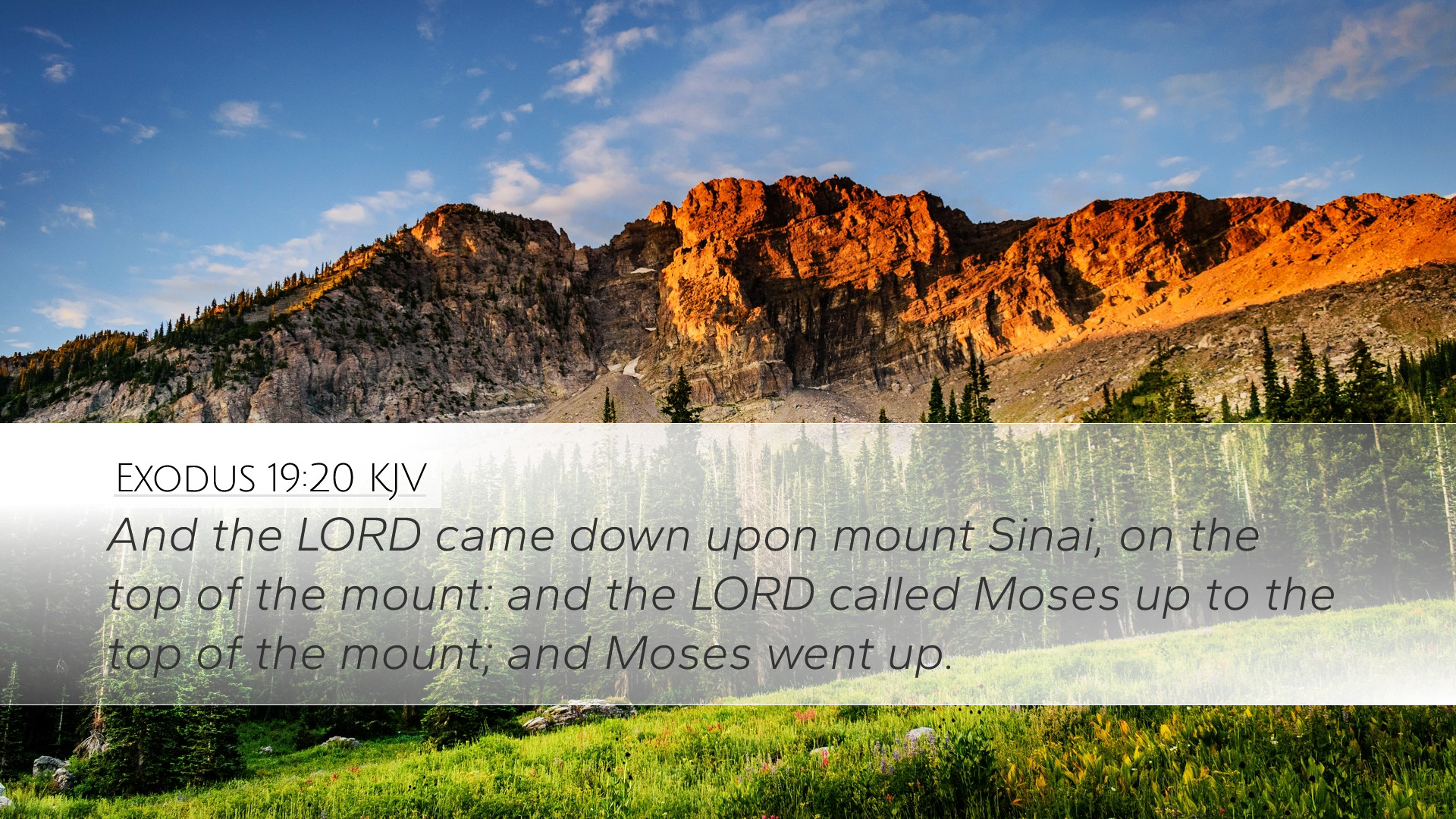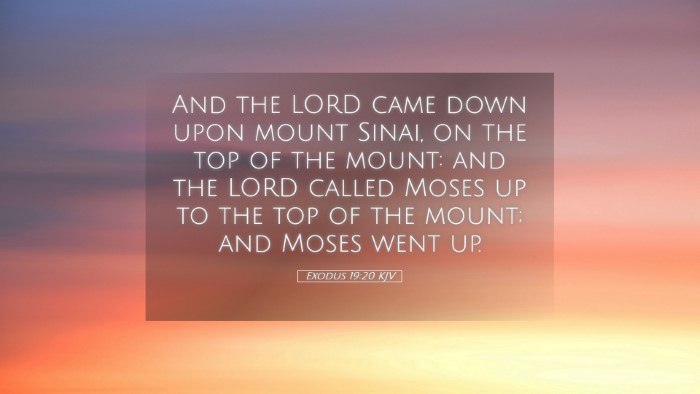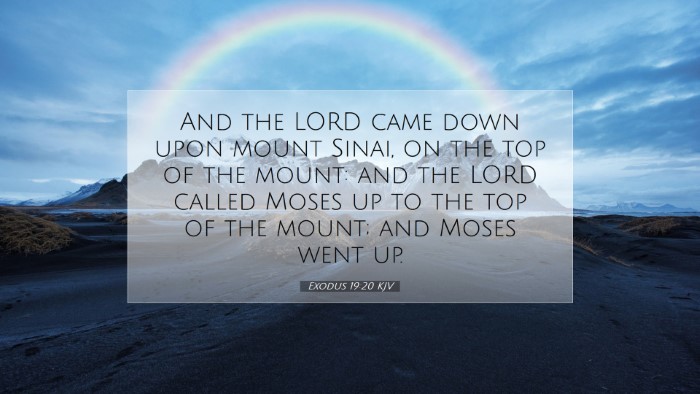Commentary on Exodus 19:20
Verse Context: Exodus 19:20 states, "And the LORD came down upon Mount Sinai, on the top of the mountain: and the LORD called Moses up to the top of the mount; and Moses went up." This verse occurs in a pivotal moment of the Exodus narrative, where God reveals Himself to Israel and establishes the covenant relationship.
Introduction
This commentary draws insights from the esteemed works of Matthew Henry, Albert Barnes, and Adam Clarke, providing a thorough exploration of Exodus 19:20. The passage exemplifies a significant epiphany of God's glory and the sacred encounter between the divine and humanity. Understanding this verse is crucial for pastors, theologians, and scholars as it encapsulates themes of holiness, revelation, and covenant.
God's Coming Down
Matthew Henry stresses the significance of God's decision to "come down" to Mount Sinai. This descent signifies God’s intention to establish a connection with His people. It represents a divine initiative, illustrating that God approaches humanity with purposes of revelation and covenant.
- Divine Humility: Despite His transcendence, God chooses to enter human history. His coming down is an act of grace, showcasing His desire to communicate with His creation.
- Covenantal Interaction: This event marks a critical moment wherein God prepares to enter into a covenant with Israel. It underscores the importance of holiness and reverence in the worship of God.
Moses Called Up
The latter part of the verse highlights God's calling of Moses to ascend the mountain, which Adam Clarke interprets as a privilege bestowed upon Moses, indicating his unique relationship with God. Clarke elaborates on the leader's role as an intermediary between God and the people.
- Intercessor Role: Moses exemplifies the ideal prophet and leader who bears the responsibility to convey God’s messages to the people. His ascent symbolizes the call to deeper spirituality and leadership.
- Preparation for Revelation: Clarke also emphasizes that Moses’s ascent prepares him for receiving the law, completing the transition from a leader of escape to a leader of moral and spiritual renewal.
Theological Implications
Albert Barnes offers critical theological insights into the ramifications of God descending to Mount Sinai. He notes that God's presence signifies His holiness and the danger inherent in approaching the divine without proper preparation.
- Holiness of God: The coming of God to deliver His commandments emphasizes the necessity of holiness in the presence of the Lord. Exodus 19 reminds adherents that a proper reverence and understanding of God’s holiness must precede any encounter.
- Covenant Relationship: Barnes reflects on the transformative nature of this divine encounter. The covenant made at Sinai anchors the identity of Israel and defines their relationship with God. It is more than mere law; it is a foundation of community and faith.
The Mountain of God
The location—Mount Sinai—represents more than just a physical site. It is regarded as "the mountain of God," a theme prevalent in biblical literature. The mountain serves as a sacred space signifying the intersection between heaven and earth.
- Symbol of Encounter: Mountains in biblical narratives often symbolize an encounter with the divine. Sinai stands as the place where God reveals His character and will, establishing it as a holy ground.
- Elevation and Separation: The ascent symbolizes spiritual elevation and a separation from the earthly to the divine. It further illustrates the essential movement of faith—rising up to God through obedience and worship.
Conclusion
Exodus 19:20 encapsulates a critical moment in the biblical narrative, marked by God's initiative to be present with His people. The verse is a profound reflection on the nature of the divine, emphasizing His holiness, the call to leadership, and the importance of covenant. For pastors, students, and theologians, the message of this verse is both timeless and transformative, inviting deeper understanding and a renewed commitment to holiness in the pursuit of a relationship with God.


